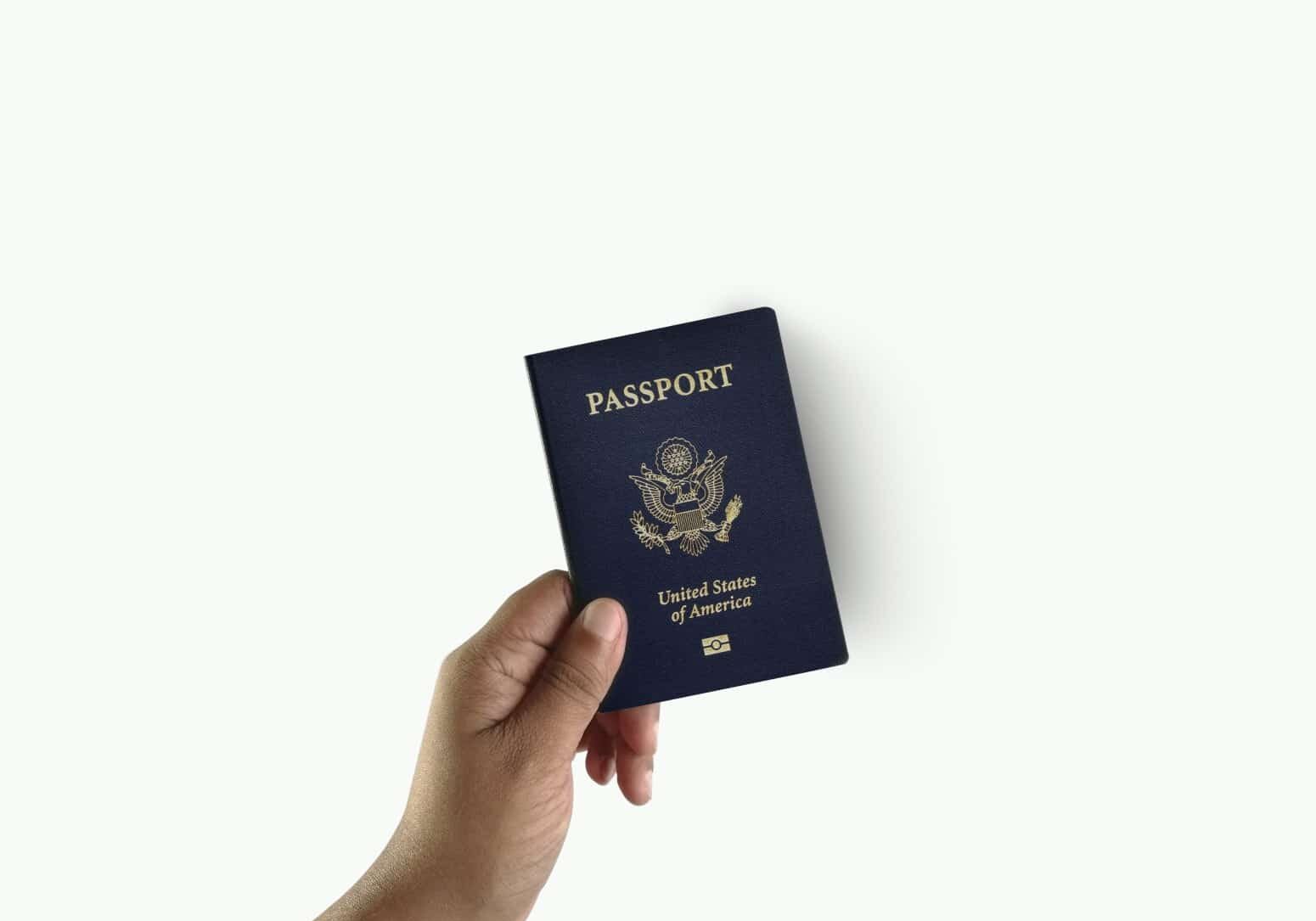Citizenship by naturalization is the process of becoming a citizen of a foreign country by meeting certain legal requirements. These requirements can include things like living in the country for a certain number of years, speaking the language, and understanding the country’s culture, but exact rules vary by country.
Naturalization can occur through long-term residency, marriage, descent, or investment. It offers many benefits, such as finding a home in another country and enjoying the privileges of your new citizenship. Other countries may have different naturalization processes, but the main steps remain similar for citizenship and naturalization.
This guide will take you through a step-by-step guide on the citizenship by naturalization process, from the requirements to the application. It will also list countries and their minimum residency requirements for citizenship by naturalization. We will explore:
- What is citizenship by naturalization?
- Benefits of Citizenship by Naturalization
- How to Obtain Citizenship by Naturalization
- General Requirements for Citizenship by Naturalization
- Application Process for Citizenship by Naturalization
- Citizenship by naturalization in the United States
- Citizenship by Naturalization Processes in Different Countries
What is citizenship by naturalization?

It allows individuals who have lived in a country for a certain period, often as permanent residents, to become full citizens, gaining rights like voting, holding public office, and obtaining a passport.
Unlike citizenship by birth or descent, naturalization is based on fulfilling residency, native language proficiency, and civic obligations and demonstrating loyalty to the country.
Applicants may also need to provide basic information, pass language and civics tests, and submit a medical certification if applicable. Some countries allow people to file online to simplify the process.
Benefits of Citizenship by Naturalization
 Full legal rights
Full legal rights
Naturalized citizens gain the same rights as native-born citizens, such as voting in elections, running for public office (except for some high-level positions in certain countries), and accessing government benefits and protections.
 Secure residency
Secure residency
Citizenship provides permanent residency security, which eliminates the risk of deportation or visa renewals. You can freely live, work, and study in your chosen country without restrictions.
 Global mobility
Global mobility
Many countries grant naturalized citizens access to powerful passports, offering visa-free or visa-on-arrival travel to numerous countries worldwide.
 Family reunification
Family reunification
Citizenship often allows you to sponsor family members, such as spouses, children, or parents, for residency or citizenship in your new country.
 Access to benefits
Access to benefits
As a citizen, you can access public services like healthcare, education, and welfare benefits. Several countries also have social security systems exclusively for citizens.
 Economic Opportunities
Economic Opportunities
Naturalized citizens can own property, open businesses, and access certain jobs that are restricted to citizens. This can improve financial stability and career growth.
 Inheritance and tax benefits
Inheritance and tax benefits
Some countries offer simplified inheritance laws or tax benefits for citizens, protecting your assets and reducing financial burdens.
How to Obtain Citizenship by Naturalization: The Main Routes
There are several routes to obtaining citizenship through naturalization. Many countries offer naturalization services with pathways that involve meeting specific residency, legal, or social criteria over time.
Here are the different ways to qualify for naturalization:
Residency-based naturalization
One of the most common ways to become a naturalized citizen is to live in a country for several years. Many countries require individuals to live in the country for a certain time as permanent residents before they can apply for citizenship. The residency requirement typically ranges from three to ten years, depending on the country.
Marriage to a citizen
Another fast way to get citizenship is through naturalization through marriage. Spouses of citizens can often apply for citizenship by marriage, which generally requires a shorter residency period, usually two to five years, and proof of a genuine relationship.
Military service
The U.S. offers expedited citizenship to foreign nationals who serve in their military. This is common in countries like the United States, where non-citizens can become citizens more quickly by serving in the armed forces.
Economic investment
Another effective and fast path to becoming a naturalized citizen is through investment programs. Some countries grant citizenship to individuals who make significant financial investments, such as in real estate or government bonds. Countries like Turkey and St. Kitts & Nevis offer this option without residency requirements.
General Requirements for Citizenship by Naturalization
The standard criteria you must meet for obtaining citizenship through naturalization vary from country to country, but they generally revolve around a set of standard requirements you must meet. However, certain circumstances may alter the process depending on the government.
Here are the critical requirements considered by immigration services that grant citizenship through naturalization:
Residency requirement
Most countries require a period of continuous residency before applying for naturalization. The duration varies by country, ranging from a few years to over a decade. For example, in the U.S., applicants must be green card holders for at least five years and maintain continuous residence, with physical presence for half of that time.
Good moral character
Maintaining good moral character is an essential criterion for naturalization. It implies that the applicant or naturalized citizen should have a clean criminal record without criminal convictions and sound character. Countries that grant citizenship may need to conduct background checks and scrutinize applicants’ and naturalized citizens’ conduct, behavior, and reputation during residency to assess their moral character.
The U.S. is another country that requires good moral character as a specific requirement for the naturalization process. Applicants cannot be involved in minor offenses like DUIs or failure to pay child support, as this can affect their eligibility.
Language proficiency
Language proficiency is often a requirement to demonstrate integration and the ability to communicate effectively in the host country. Many countries require applicants to pass language tests to ensure a basic understanding of the official language(s). This proficiency requirement may involve written, spoken, and comprehension skills.
For example, the United Kingdom requires passing an English test and demonstrating knowledge of life in the UK during the naturalization process, as do Sweden and the Netherlands, which require passing the Civic Integration Examination with a language proficiency assessment.
Knowledge of the country’s history
To ensure a meaningful connection and integration into the host country, applicants may be required to demonstrate knowledge of its history, culture, and institutions. This knowledge can be assessed through citizenship tests or interviews, where applicants may be asked questions about the country’s political system, geography, customs, and traditions.
Dual citizenship considerations
Some countries allow dual citizenship, while others may require you to renounce your original citizenship before becoming a naturalized citizen. For instance, countries such as the United Kingdom, Mexico, and Italy recognize multiple citizenship and dual nationality, allowing individuals to acquire passports without renouncing their existing citizenship.
Special considerations for naturalization
Category | Exception | Examples |
Elderly Applicants | Exempt from language proficiency and civics knowledge tests due to age and long-term residency. | U.S.: Applicants aged 55+ with 15 years of permanent residency or 50+ with 20 years of residency are exempt from the English test but must take the civics test in their native language. |
Minors | Special rules for children, including automatic citizenship or a streamlined application process. | - Germany: Children born to naturalized parents can acquire citizenship automatically. |
Applicants with Disabilities | Exemptions from testing and other requirements due to physical or mental impairments. | - Canada: Disability accommodations include waiving the knowledge test for those unable to complete it. |
Military Veterans or Active Duty | Exempt from standard residency or naturalization requirements, regardless of age. | - U.S.: Veterans can naturalize regardless of age if they served honorably during designated periods of conflict. |
Stateless Individuals | Minimized residency and other requirements for vulnerable individuals, including minors. | - Sweden: Stateless minors can naturalize after just 3 years of residence. |
Age-Based Fee Reductions | Reduced or waived application fees for older adults or minors. | - India: Citizenship fees for senior citizens are significantly lower. |
Application Process for Citizenship by Naturalization
By the time the process reaches the application stage, it means thorough research has been conducted on the immigration laws and regulations for citizenship by naturalization in the country where the applicant wishes to live.
The application process for obtaining citizenship by naturalization differs in many countries. Many nations follow a general step-by-step process, but some may require additional requirements.
Here is a typical step-by-step process for obtaining citizenship by naturalization.
1. Ensure eligibility
The first step for naturalization applicants is to confirm that they meet the basic requirements, such as legal residency for a set number of years, a clean criminal record, and financial stability.
2. Provide supporting documents
Another important step that may determine the processing time is submitting necessary and correct documents, which may include:
- Proof of residency status,
- Identification,
- Tax records,
- Other documents to demonstrate integration (e.g., employment or community involvement).
3. Submit naturalization application
Complete the application form provided by the relevant government body (e.g., immigration or citizenship office) and pay the required fees.
4. Pass language and knowledge tests
A step to prove integration in society is to take a test to demonstrate proficiency in the country’s official language and pass a civics test covering the country’s history, government, and laws.
5. Attend an interview
Some countries require an in-person interview to assess your understanding of the country’s values, laws, and reasons for seeking citizenship. For example, countries like France and Australia require interviews with local authorities to assess integration, language skills, and knowledge of the countries’ society.
6. Undergo background checks
Authorities will conduct a background check to verify your criminal record, financial history, and overall character to ensure you meet the good moral character requirement.
7. Wait for decision
After completing all the steps, wait for the decision on your application. Depending on the country’s processing times, this may take several months.
8. Take the oath of allegiance
Once at this step, the process is coming to an end. If approved, you will be invited to take an oath of allegiance, formally pledging loyalty to the country and agreeing to abide by its laws and values.
9. Receive citizenship certificate
After taking the oath, you will receive your citizenship certificate, officially confirming your status as a naturalized citizen.
Citizenship by Naturalization in the United States
The U.S. has one of the most sought-after passports in the world. Before applying for naturalization in the United States, you must have five years of continuous legal residency in the country, which includes holding a Green Card (lawful permanent resident status).
The requirement is reduced to three years for Green Card holders married to U.S. citizens. Engaging with Citizenship and Immigration Services and the Immigrant Legal Resource Center can provide additional guidance through the process.
Who is eligible for citizenship by naturalization in the U.S?
To apply for U.S. citizenship through naturalization, applicants must meet the following requirements outlined under naturalization laws. These include fulfilling time criteria for physical presence and continuous residence, though these may be waived or adjusted in certain cases, such as military service. The process is extensive and involves understanding the basic responsibilities of citizenship, including allegiance to the U.S. and active engagement with civic duties.
State and local courts often review applications for naturalization ceremonies and legal matters. However, the following requirements highlight clear pathways for different groups, such as green card holders, spouses of U.S. citizens, and military personnel, detailing when they can become citizens and the steps they must take.
Eligibility Category | Residency Requirement | Application Timeline |
General Green Card Holders | Must physically live in the U.S. for 30 months out of 5 years | Can apply after 5 years of continuous residency. |
Spouse of a U.S. Citizen | Must live in marital union and physically reside for 18 months out of 3 years | Can apply after 3 years of marriage and green card status. |
Refugee or Asylee (with a Green Card) | Physical presence requirements may apply based on date of asylum/refugee status approval | Typically eligible after 5 years from entry, counting prior time as a refugee/asylee. |
Military Service Members | No physical presence required during active service | Eligible anytime during active duty or within 6 months of honorable discharge. |
Widow/Widower of Military Personnel | No residency requirement | Can apply immediately, regardless of time as a green card holder. |
Children Under 18 of U.S. Citizens | No residency required if living with U.S. citizen parent(s) | May automatically acquire citizenship under specific conditions. |
Applicants with Wartime Service | No physical presence or residency required | Can apply immediately under special provisions during designated conflict periods. |
US naturalized citizen requirements

- To be eligible for naturalization as a U.S. citizen, you must be at least 18 years old when you submit your application.
- Being a permanent resident for at least five years or three years if you are married to a U.S. citizen.
- Being able to read, write, and speak basic English.
- Applicants must demonstrate good moral character, including no serious criminal convictions and adherence to U.S. laws.
- Pass a civics test and an English language proficiency test.
- Applicants must take an Oath of Allegiance.
- Filing fees are also to be expected.
- Must have lived in the state or USCIS district where the application is filed for at least,
How much does it cost to be a naturalized citizen in the US?
The cost to become a naturalized U.S. citizen primarily involves the following fees:
- Form N-400 Application Fee: The standard application fee for naturalization is $640.
- Biometrics Fee: An additional $85 fee for fingerprinting and background checks, making the total cost $725 for most applicants.
Other additional costs that may be subjective to the applicants’ situation include:
- Fee waivers or reductions: Some individuals may qualify for a fee waiver (Form I-912) or a reduced fee (Form I-942) based on financial hardship or income levels.
- Military applicants: Members of the U.S. Armed Forces applying for naturalization under special provisions are exempt from paying these fees.
- Other costs: Additional expenses, such as legal assistance, preparation courses, or travel for interviews and ceremonies, may apply but vary individually.
Processing time
Becoming a United States citizen through naturalization involves submitting an application, attending an interview, and taking the citizenship test. Processing times can vary but generally take six to 12 months after the interview.
Citizenship by Naturalization Processes in Different Countries
Various countries offer more accessible paths to citizenship by naturalization, while some are known for their sought-after passports. The nations below are worth highlighting for their varying naturalization requirements, including residency, language proficiency, cultural integration, and dual citizenship allowances.
 1. Spain
1. Spain
Additional requirements
- Proof of integration, including knowledge of Spanish culture and language (through the DELE exam for Spanish language proficiency).
- A clean criminal record in both Spain and your home country.
- Proof of financial stability and contribution to society.
Application process duration
- After submitting supporting documents and undergoing an interview, the processing may take up to two years.
 2. Portugal
2. Portugal
Portugal is one of the more flexible European countries in terms of naturalization. There is a five-year residency requirement and no obligation to renounce previous citizenship. The country also stands out for its Portugal Golden Visa, which is particularly appealing because it offers a potential pathway to citizenship after specific criteria is met.
Additional requirements
- Proof of basic knowledge of the Portuguese language (A2 level)
- Clean criminal record
- The option to retain original citizenship (Portugal allows dual citizenship).
- There is no requirement to demonstrate economic contribution or financial stability.
Processing time
- After applying, the permanent resident can expect the process to take one to two years to complete.
 3. Italy
3. Italy
Ten years of lawful permanent residence is required for non-EU citizens to apply for naturalization in Italy. However, shorter periods apply for those married to an Italian citizen, with two years of residence in Italy or three years abroad, provided they meet the continuous residence and physical presence requirements. Dual citizenship is also allowed.
Additional requirements
- A sufficient level of Italian language proficiency (B1 level).
- Proof of stable income and accommodation.
- Clean criminal record in Italy and any countries of prior residence.
Processing time
- Italy has one of the slower processes, and naturalization applications can take several years to be fully processed.
 4. New Zealand
4. New Zealand
New Zealand requires the applicants to be lawful permanent residents for five years before the application date. While dual citizenship is allowed, applicants must spend most of this time physically present in the country.
Additional Requirements
- Proof of good character (including police clearance certificates from all countries where the applicant has lived for 12 months or more).
- Knowledge of New Zealand’s customs, language, and values.
- Financial stability or a job offer is not mandatory, but applicants must not have outstanding debts to the government.
Processing time
- After applicants submit their forms, provide proof of residence, and undergo a thorough character assessment, processing time can range from 12 to 18 months.
 5. Ireland
5. Ireland
Ireland requires five years of residency out of the previous nine years (with at least one year of continuous residence before applying). However, the requirement is three years of residence for those married to an Irish citizen. The country also permits dual citizenship.
Additional Requirements
- Applicants must be of “good character,” as assessed by Garda vetting (police clearance).
- Basic knowledge of Irish culture is preferred but not tested.
- Ireland allows dual citizenship, so you don’t need to renounce your previous nationality.
Processing time
- After applicants file their documents, processing times can vary but generally take 18 to 24 months. Approval is subject to ministerial discretion.
Frequently Asked Questions about Citizenship through Naturalization Process
What is citizenship through naturalization?
Citizenship through naturalization refers to the process through which an individual acquires citizenship of a country by meeting the legal requirements for acquired citizenship set by that country, typically involving residency, language proficiency, and passing a citizenship test.
What are the five requirements for naturalization?
The specific requirements for naturalization vary from country to country but generally include:
a) Meeting the minimum residency government
b) Having a lawful immigration status
c) Demonstrating knowledge of the country’s language, history, and government
d) Passing a citizenship test or interview
e) Displaying good moral character and abiding by the country’s laws
Is naturalization the same as citizenship?
Naturalization is the process of obtaining citizenship, while citizenship is the legal status of a member of a particular country. Naturalization is how an individual becomes a citizen, while citizenship is holding the status of being a citizen of a particular country and also encompasses the rights, privileges, and responsibilities that the citizens of the country can enjoy.
How long does it take to get citizenship through naturalization?
The length of time it takes to obtain citizenship through naturalization can vary depending on several factors, including the country where you are applying for citizenship, your individual circumstances, and the efficiency of the immigration system in that country.
In the United States, for example, the process typically takes several years.
What does it mean to get naturalization?
Naturalization is the process by which a foreign citizen or national becomes a citizen or national of another country. It’s typically a legal process governed by the laws of the country in which the individual seeks citizenship.
What is a naturalized citizen?
A naturalized citizen is an individual who has acquired citizenship in a country through the process of naturalization, as opposed to citizenship acquired by birth.
What documents are needed for the naturalization application?
The documents needed for a naturalization application vary by country but generally include the following:
- Proof of Residency
- Birth Certificate
- Passport
- Proof of Legal Entry and Status
- Criminal Record Check
- Language Proficiency Certificate.
- Civic Knowledge Test
- Proof of Economic Activity
- Marriage Certificate (if applicable)
- Photo:
- Application Form
Can I apply for naturalization if I have dual citizenship?
Yes, in many countries, you can apply for naturalization even if you already hold dual citizenship, but the rules vary significantly depending on the country.
How long does the citizenship by naturalization take in the U.S?
The process for obtaining U.S. citizenship by naturalization generally takes about 6 to 12 months, from the naturalization interview to the naturalization ceremony. However, this timeframe can vary based on individual circumstances and location.
What are the general eligibility requirements for naturalization in the U.S.?
- Must have 5 years of continuous legal residency as a Green Card holder, or 3 years if married to a U.S. citizen.
- Must demonstrate good moral character and adherence to U.S. laws.
- Must pass an English test (unless exempt due to age or disability).
- Must pass a civics test on U.S. history and government.
- Must take an Oath of Allegiance to the United States.



